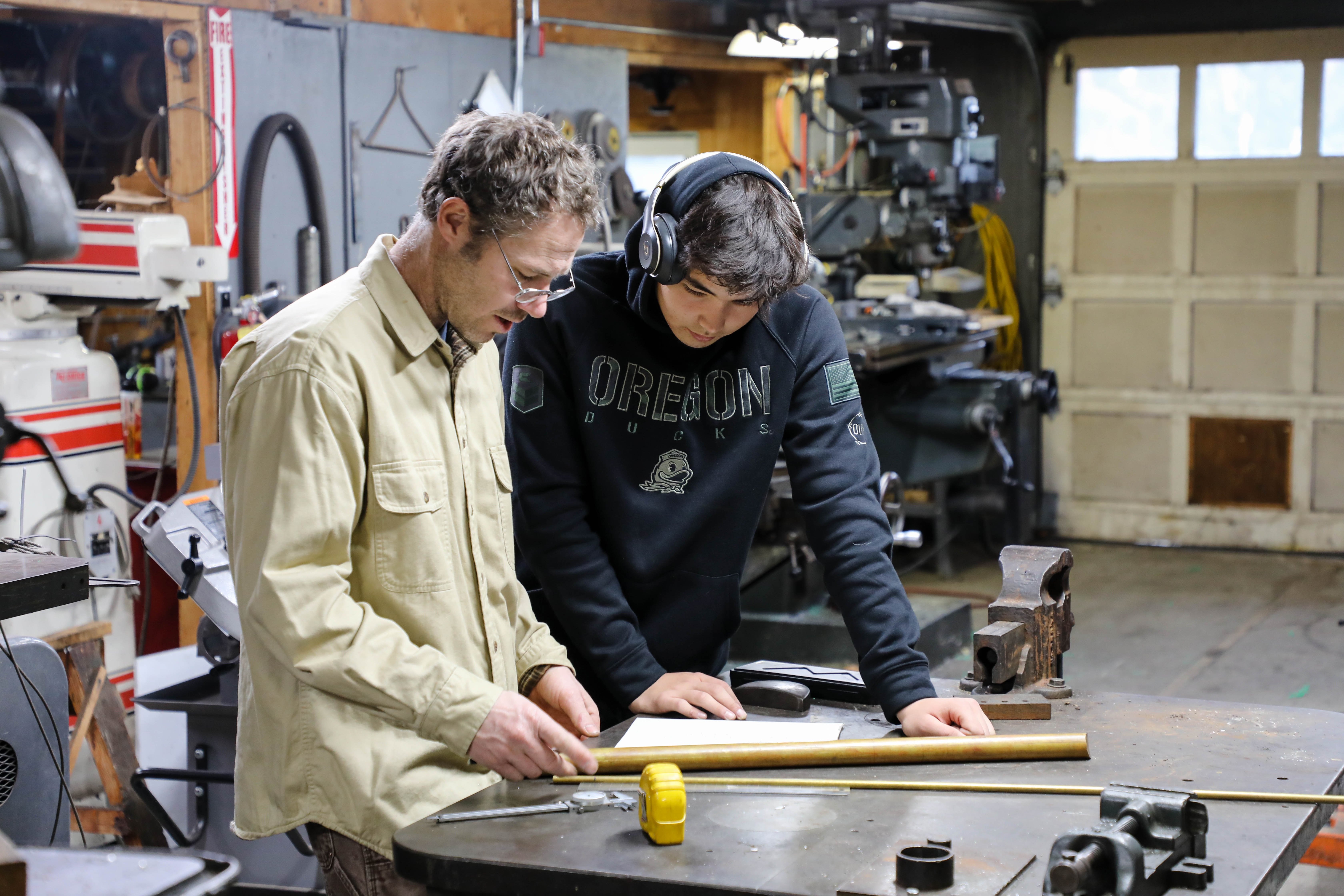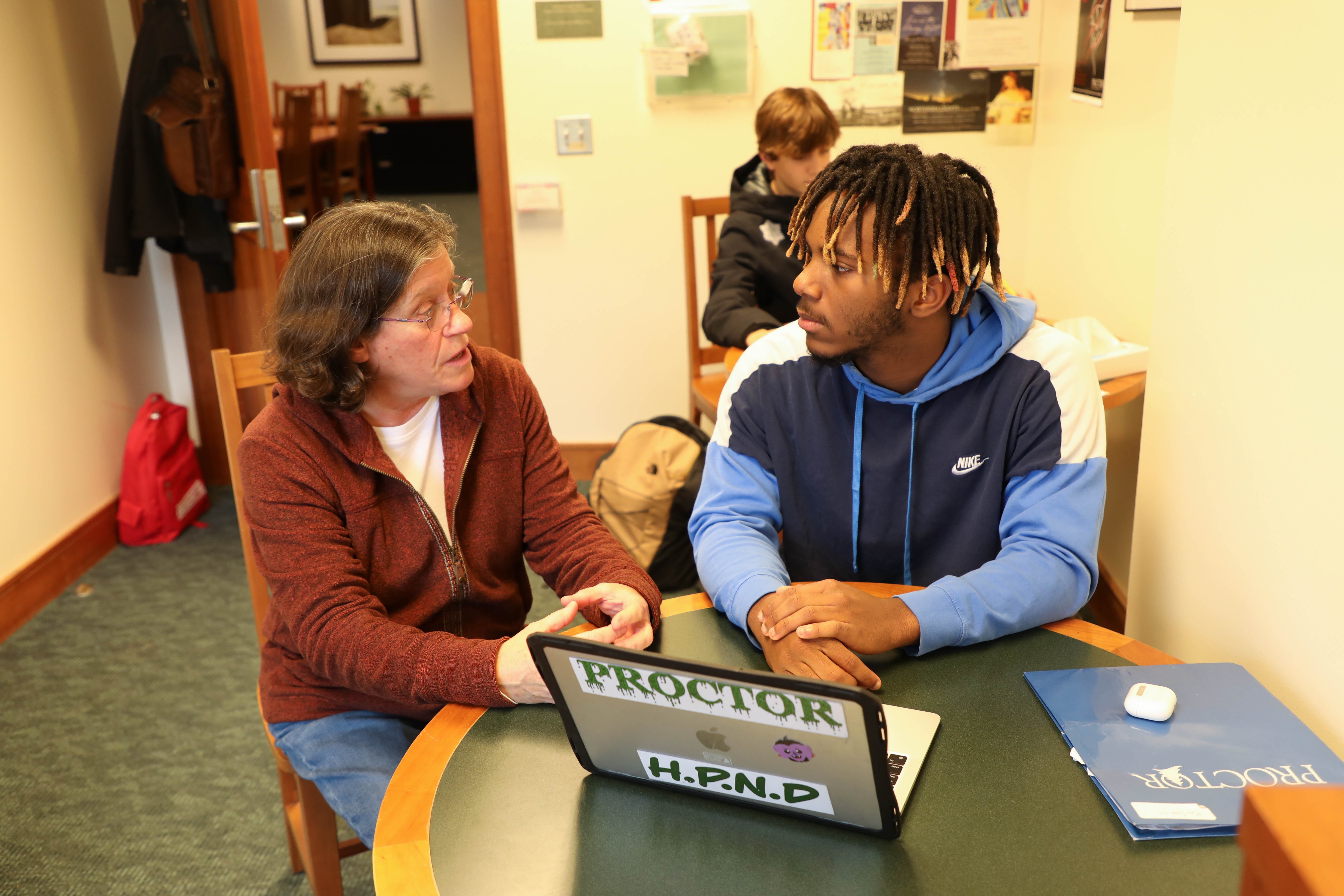We are ‘educators’ by profession, but our responsibility to our students extends well beyond the walls of our classrooms. We serve as examples for our students: in the dining hall, in assembly, when we play with our own children, when we interact with our peers, and when we volunteer our time in the local community. Students arrive at Proctor having been shaped and molded by their own parents, and our role as a boarding school is to build upon the foundation their parents provided.

I received a text from a former colleague earlier this week recounting a moment he witnessed at the Proctor Ski Area during Sunday’s FIS race series (a race that saw some of the best skiers in the east travel to Andover and speed down the rock-hard surface Garry, Steele, and Mac had somehow managed to keep intact through the past week’s rain.). The text read, “I am sure that he (Maintenance Team member Steele Henderson) did not notice that I noticed him picking up the piece of trash, but it left an impression. He noticed the paper and swerved to pick it up. It could have been a ‘not my job’ moment but it wasn’t. The small gesture indicated that he took pride in the whole of the area, the whole of his house, and fostering that kind of buy in throughout the community - students, faculty, staff, even parents - is one of the key elements to making the community thrive.”

An injury during last night’s hockey game saw more of those moments by Proctor’s remarkable athletic trainers, hockey coaches, rink staff, students, and other adults as we, collectively, sought to take care of the injured student, her family, and the rest of the student community. People step up - time after time - to make this community what it is. They are not glamorous moments, but they are essential.

Over the past year, the term “quiet-quitting” has entered our lexicon. We read articles, see videos, and hear murmurs among our friends about how there are moments that we are tempted to just do the bare minimum our job requires. THIS recent piece in the New Yorker shares some powerful insights on how quiet quitting is not just a recent phenomenon, but a reality that has lived, in different forms, with each generation of adult as they wrestle with the meaning of work in their lives.
By the time the boomers began having kids of their own, in the nineteen-eighties, their countercultural dreams had long since crumbled. They had to figure out what new message about the meaning of work to pass on to their children, the so-called millennials (born between 1981 and 1996). In looking for a compromise between corporate conformity, which they still distrusted, and their own failed attempts to reject work altogether, the boomers came up with a clever solution: telling the millennial to seek work that they loved. This advice might sound timeless, but its arrival can be connected to this specific period.
Quiet quitting is not a life philosophy or policy proposal that needs logical scrutiny. It’s also not a political weapon to be wielded to prove how much more woke or conservative you are than everyone else. It’s both more incoherent and essential than all of that. Figuring out how work fits into a life well lived is hard, but it’s an evolution that has to happen. Quiet quitting is the messy starting gun of a new generation embarking on this challenge.

Life as a boarding school teacher is largely irrational. You are asked to work long hours, be on call all the time, live alongside messy, smelly, emotional teenagers, all while seeking to raise your own family, cultivate your own passions, and have your own life. On the surface, it doesn’t make sense. Who would sign up for this job? And yet once you are immersed in the lifestyle, and yes it is wholly a lifestyle job, you begin to understand that the messy interwoven strands of personal and professional components of being an educator can weave a beautiful life over time if you let them.

Our students are always watching. They see how we approach living and working in community with each other - through a philosophy of quiet leading, in stark contrast to that of quiet quitting - by doing the little things necessary to make this community work. They see us pick up the piece of trash, sprint toward the injured student, and wrap our arms around each other when hurt enters our worlds. They believe in Proctor because they see Proctor in us. It is this powerful, beautiful relationship that allows us to thrive as a community.








